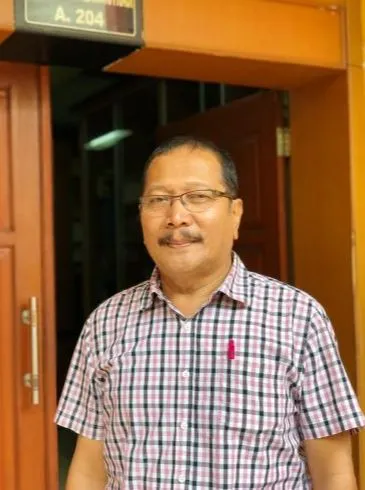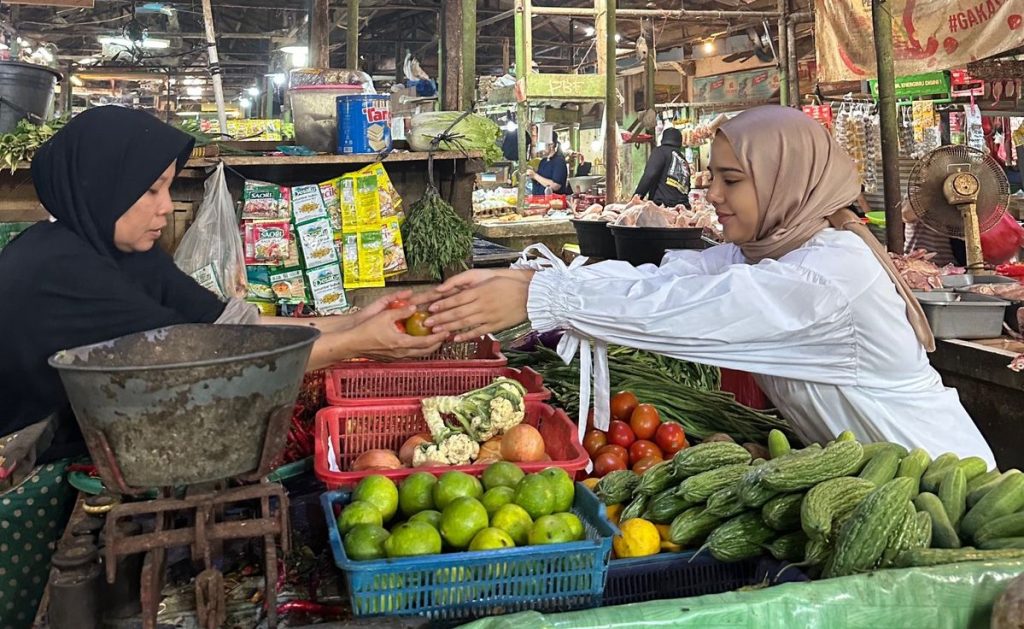UNAIR NEWS – Post-election, the spike in staple commodity prices has become a significant public concern.
Inconsistencies in policy grand design
Public Policy Expert from Universitas Airlangga, Dr. Gitadi Tegas Supramudyo, M.Sc., asserted that the rise in staple commodity prices has been a persistent issue for a long. According to policy studies, this is caused by inconsistencies in implementing the grand design of policies aimed at meeting the needs of society.
The errors are then recurrent due to various factors such as inadequate and unintelligent policies; lack of clarity and inconsistency; and the weak bargaining position of the state against entrepreneurs, resulting in the public’s interests being sidelined due to interventions.
“There is a pattern indicating that price increases consistently during certain periods such as holidays, festive seasons, harvest times, and others. It happens because the grand design derived from policy instruments is not comprehensive enough. Staple commodities can achieve stability and security only when the state is prepared, for instance, in terms of rice, how then is the grand design towards achieving self-sufficiency implemented,” he said.
Indonesia, being an agrarian country, should have the spirit of self-sufficiency. Unfortunately, it is disrupted by increasing imports. However, reserves of nine staple commodities could serve as an alternative in facing price fluctuations in the market.
“As per the classical Keynesian perspective on supply and demand equilibrium, prices are influenced by high demand. If this occurs, an increase in supply should be necessary. However, what has been happening so far is not a supply by design formulated by superior and intelligent policies, but only temporary or emergency supply measures such as low prices, market operations, and government subsidies. While these are indeed forms of solution, they are only temporary,” Dr. Gitadi said.

Dr. Gitadi Tegas Supramudyo, M.Sc. Public Policy Expert of Universitas Airlangga. (Photo: By courtesy)
Resolution
The Faculty of Social and Political Sciences lecturer highlighted several measures to address the rise in staple commodity prices, such as the necessity for a reliable, intelligent, and superior grand design. There is a need for political capability and willingness to strengthen private bargaining power and to bravely reject interventions while engaging in dialogue as a balancing act, as each party has different interests.
“The grand design created to address this issue can be returned to each ministry under the president’s command, for instance, and should ideally be implemented through Nawacita, which is translated into sectoral policy and field-level actions,” he said.
Despite various information being easily accessible regarding policy deviations in the public interest, the government still tends to turn a blind eye. This occurs due to increasingly aggressive interventions from financial and capital powers, leading policymakers to face greater temptations and becoming unable to resist interventions.
“This is where the state should play a greater role and maintain distance from private interests, rather than conspiring to benefit oneself, family, and groups at the expense of the public,” Dr. Gitadi said.
He emphasized the importance of educating the public about the rise in staple prices. Providing accurate information through credible official websites is crucial. He suggested teaching the public to access news sources with good public trust to avoid the dissemination of news that may contain hidden agendas.
Author: Ilma Arrafi Nafi’a
Editor : Khefti Al Mawalia









